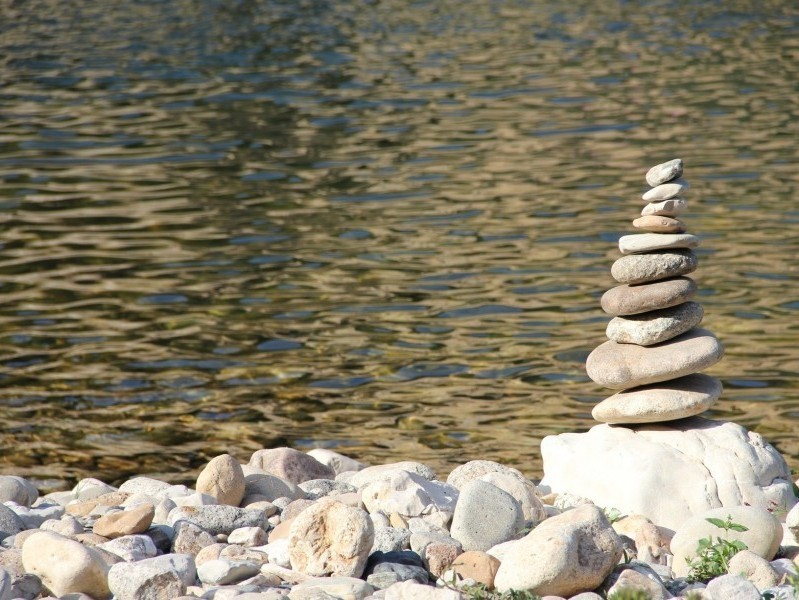Isn’t technology supposed to make life easier? It is curious then that working professionals are now working harder than ever.
I bet if you went back in time and told our ancestors about all the great technology we have in society today allowing us to communicate, collaborate, travel, grow higher quantities of food and live in relative comfort; they would be insanely jealous of all the free time such innovations should afford us.
Do you have plenty of free time?
Probably not, and you are not alone.
This blog post is all about the problem of work-life balance, and what you can do to alleviate the problem. It is a problem not because I think it is a problem, it is a problem because I have personally experienced the issue during my years working in the technology industry, and studies show it is a critical factor in workplace unhappiness.
Contents
The grim statistics
“The research is clear: beyond ~40 – 50 hours per week, the marginal returns from additional work decrease rapidly and quickly become negative.” ~Facebook Co-founder Dustin Moskovitz
James Surowiecki makes a sharp point in an essay featured in The New Yorker in 2014:
“30 years ago, the best-paid workers in the U.S. were much less likely to work long days than low-paid workers were. By 2006, the best paid were two times as likely to work long hours as the poorly paid, and the trend seems to be accelerating.”
Even worse, the 40 hour work week, which itself is a product of the industrial revolution, is a thing of the past. The 50 work week is the new normal, as found by Harvard Business School.
“A 2008 Harvard Business School survey of a thousand professionals found that 94% worked 50 hours or more a week, and almost half worked more than 65 hours a week.”
At least in the pre-cell phone and pre-email days, it was possible to find peace when you leave work. We no longer have that luxury.
A survey by LinkedIn which polled over 18,000 employees in 26 countries to understand what factors influence career satisfaction around the world found that work-life balance was the second most important reason for changing jobs.
This underscores the importance of figuring out a way to succeed at work without sacrificing happiness and freedom. The good news is, not only is work-life balance important to keep sanity, but it also helps to ensure that the work you do is efficient and effective.
Working hard and working smart are entirely different things.
Hard work won’t make it better
Sometimes working hard just gets you stuck.
I know all about the benefits and value of hard work. My parents taught my brother, sister, and I to work hard and never complain. They also taught us to use our brain and think before doing. Part of using your brain is knowing when hard work is leading you to a dead end.
In any endeavor worth doing, there will be a time when things will get challenging. Being able to persevere is the difference between success and defeat. When it comes to your work, it can mean the difference between a promotion and bonus, or nothing. Hard work has its place.
However, the opposite is also true. When you are doing great work and finding flow, seemingly impossible tasks do not seem to cause stress or effort in accomplishing them.
It is also true that there are people enamored with hard work, and addicted to the stress is creates.
If you are overwhelmed, feeling stuck and finding that you need to make compromises in your career or life that you never thought you would have to make, you are trapped in a cycle of working harder instead working smarter.
Working smarter can save you time and your sanity, but it is not easy. It takes action and a willingness to change some habits that are keeping you working late and feeling overwhelmed.
In the rest of the post, I’ll cover a few practical ways to attain greater work-life balance and in the process achieve more success in your work and greater joy throughout the remainder of your life.
Ways to improve work life balance
When I work with coaching clients, we begin by taking stock of all the important areas of their life, of which work is one piece.
Typically, people will bring up seven or eight areas of life, including fields such as finances, relationships, health, and work, among others. From here, we will then pick 2–3 areas to focus on for the near future. One area is always their career (as most of my clients are technology professionals) but others draw from different parts of life. These other goals get the same focus as the work-related goal; even if the primary motivator in hiring me is to find a better job or get a promotion.
Having a non-work goal is important. It provides a distraction from the sometimes tedious efforts involved with advancing a career. Relationships and health goals can also inspire creativity by bringing in fresh perspectives and energy into the mix.
For me personally, I have done some of my best work when I’ve pursued important goals outside of work – be it running an ultramarathon, completing Ironman triathlons or teaching yoga while working a full-time job.
Having something to look forward to outside of work helps to create a boundary that keeps work from encroaching on the rest of life while also sparking new ideas and perspectives that wouldn’t otherwise appear by just focusing on work all the time.
2) Adopt an organizational system
I’ve created my unique system of managing my business and my various tasks. It involves a few tasks lists, one list of things to do now and another list of things to do later, as well as my extensive use of Evernote and Airtable to manage content related to my business. I also have a simple approach to handling email, where everything that doesn’t warrant a reply or action goes to an archive or a newsletters folder to read later.
The system I’ve created works very well. I never worry about forgetting what to do, nor do I feel overwhelmed with the amount of work I have. I feel very supported by technology, as opposed to taken advantage of by it.
There are numerous systems for organizing and helping you to get things done. You can also do what I have done and make up your own or learn what someone else does and copy them.
Whatever you choose, use it consistently. The power in an organization system shows up when it becomes second-nature. Even if you prefer using paper and sticky notes, keep up with it consistently and you will reap the benefits.
If you are looking to adopt another system, you might benefit from David Allen’s Getting Things Done approach. I have friends who are raving fans of his system. Drew Carey is also a convert 🙂
3) Wake up early
If you work regular hours, find it hard to achieve work-life balance, but don’t wake up consistently before 6 am, you need to focus on getting up earlier. I wake up between 5:30–6am now, with no alarm. Many successful people wake up much earlier than that.
Imagine meditating, working out, reading and eating breakfast all before your normal wake up time. How much would that help you the rest of your day? How much more relaxed would your evenings be, knowing that you already completed your exercise?
Even if you are a night owl, try waking up early and see what that does for your work life balance!
4) Stop working at the right time
I have a tendency to want to finish tasks before I can stop working. You might think this tendency is great. When I worked at Microsoft, many projects and tasks that I took on required much more effort than I could muster in one sitting. I used to push through and try to finish everything I could before going home. All too often, this resulted in my staying at the office much longer than I would have liked, or booting up my laptop later in the evening.
Instead of needing to finish tasks, it is a useful skill to be comfortable leaving work partly done when you reach a decent stopping point, as long as you can commit to completing the work within a reasonable amount of time.
The winner of the 1954 Nobel Prize in literature, Ernest Hemingway, used this powerful method to avoid writer’s blog and keep the momentum going. You can use the same method to not only improve your creativity and productivity but get home from work at a reasonable hour!
“The best way is always to stop when you are going good and when you know what will happen next. If you do that every day … you will never be stuck. Always stop while you are going good and don’t think about it or worry about it until you start to write the next day. That way your subconscious will work on it all the time. But if you think about it consciously or worry about it you will kill it and your brain will be tired before you start.”
– Ernest Hemingway
5) Learn to say no
How comfortable are you at saying no? As Steve Jobs said, it’s easy to say yes, but the real value comes from saying no.
“People think focus means saying yes to the thing you’ve got to focus on. But that’s not what it means at all. It means saying no to the 100 other good ideas that there are. You have to pick carefully. I’m as proud of the many things we haven’t done as the things we have done.”
-Steve Jobs
Unless you learn to say no, other people will run your agenda and your life. Saying no is natural for some people, but very unnatural for others, including myself.
That is why I subscribe to Derek Siver’s recommendation that things should either be a “Hell Yeah!” or a solid no. Time is our most precious resource, and we need to be vigilant about protecting it. Furthermore, when we say no to things we do not care about, we say yes to the opportunity to spend precious time on something much more meaningful.
Derek Sivers says, “If I feel anything less than, “Wow! That would be amazing! Absolutely! Hell yeah!” – then my answer is no.”
That’s great advice.








0 Comments